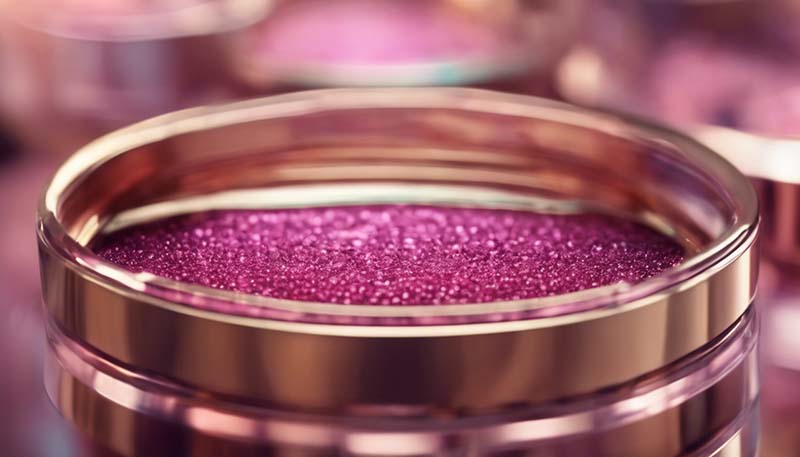The Impact of Nanotechnology on the Cosmetics Industry
Introduction
Nanotechnology,the science of manipulating matter at the nanoscale,has revolutionized various industries,including cosmetics.This article delves into the impact of nanotechnology on the cosmetics industry,focusing on the development of novel formulations,the enhancement of product efficacy,and the potential risks associated with the use of nanomaterials in personal care products.
The Science Behind Nanotechnology
At the core of nanotechnology is the ability to control and manipulate materials at the atomic and molecular level.By doing so,scientists can create new structures and properties that do not exist in larger forms of the same material.In the cosmetics industry,this has led to the development of more effective and targeted products that can penetrate deeper into the skin,deliver active ingredients more efficiently,and provide superior sensory experiences.
Enhanced Product Efficacy
One of the most significant impacts of nanotechnology in the cosmetics industry is the enhanced efficacy of products.Nanoparticles can carry active ingredients across the skin barrier and release them slowly over time,ensuring a more effective and sustained delivery.This has led to the creation of anti-aging products that can combat wrinkles and fine lines more effectively,as well as skin-whitening products that can penetrate melanin-producing cells to reduce the appearance of dark spots and uneven skin tone.
Improved Sensory Experience
The use of nanotechnology has also improved the sensory experience of cosmetics.For instance,nanoparticles can be used to create more stable and homogenous emulsions,resulting in products with a smoother texture and a more luxurious feel.Additionally,nanotechnology can enhance the color and shine of cosmetics,making them more vibrant and long-lasting.
Challenges and Risks
Despite the numerous benefits,the use of nanotechnology in cosmetics also presents challenges and risks.One concern is the potential for nanoparticles to accumulate in the body over time,leading to unknown health effects.Another challenge is the lack of standardized testing methods for nanomaterials,which makes it difficult to evaluate their safety and efficacy accurately.
Regulatory Frameworks
To address these concerns,regulatory frameworks are being developed to govern the use of nanotechnology in the cosmetics industry.In the European Union,for example,cosmetic products containing nanomaterials must be labeled as such,and manufacturers are required to provide safety data for these ingredients.In the United States,the Food and Drug Administration (FDA) has also issued guidelines for the use of nanotechnology in cosmetics,emphasizing the importance of safety assessments and transparency in ingredient labeling.
The Future of Nanotechnology in Cosmetics
As research continues,the potential applications of nanotechnology in the cosmetics industry are vast.Future developments may include personalized skincare products that adapt to an individual's unique skin chemistry,targeted treatments for specific skin conditions,and even smart cosmetics that can monitor skin health and provide real-time feedback to users.
Conclusion
In conclusion,nanotechnology has significantly impacted the cosmetics industry by enhancing product efficacy,improving sensory experiences,and introducing innovative formulations.While challenges and risks remain,ongoing research and the development of regulatory frameworks are helping to ensure the safe and effective use of nanotechnology in cosmetics.As the field continues to evolve,consumers can look forward to an exciting future of advanced,personalized,and highly effective beauty products.